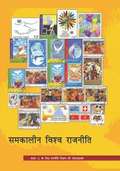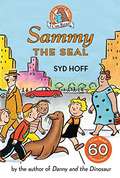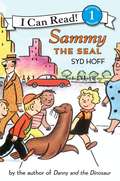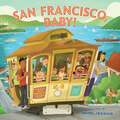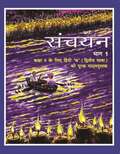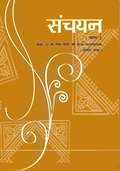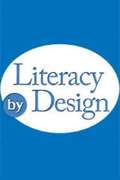- Table View
- List View
Samkalin Vishwa Rajniti Class 12 - NCERT - 23: समकालीन विश्व राजनीति १२वीं कक्षा - एनसीईआरटी - २३
by Rashtriy Shaikshik Anusandhan Aur Prashikshan Parishad"समकालीन विश्व राजनीति" पुस्तक वैश्विक राजनीति के बदलते परिदृश्य को स्पष्ट रूप से प्रस्तुत करती है। यह शीत युद्ध के अंत, वैश्वीकरण, अंतरराष्ट्रीय संगठनों, पर्यावरणीय चुनौतियों, आतंकवाद, सुरक्षा, और भारत की विदेश नीति जैसे प्रमुख विषयों को समाहित करती है। पुस्तक शीत युद्ध के दौरान अमेरिका और सोवियत संघ के बीच शक्ति संतुलन, गुटनिरपेक्ष आंदोलन और बर्लिन दीवार के पतन पर प्रकाश डालती है। वैश्वीकरण और आर्थिक उदारीकरण के प्रभावों को समझाते हुए यह विश्व व्यापार संगठन (WTO), अंतरराष्ट्रीय मुद्रा कोष (IMF) और विश्व बैंक की भूमिकाओं की व्याख्या करती है। साथ ही, संयुक्त राष्ट्र (UN) और क्षेत्रीय संगठनों जैसे यूरोपीय संघ (EU) और आसियान (ASEAN) की भूमिका को भी रेखांकित करती है। पुस्तक जलवायु परिवर्तन, सतत विकास लक्ष्यों (SDGs) और अंतरराष्ट्रीय समझौतों जैसे पेरिस संधि पर चर्चा करती है। आतंकवाद, साइबर युद्ध और आधुनिक सुरक्षा रणनीतियों को समझाते हुए यह भारत की विदेश नीति, अमेरिका, रूस और चीन के साथ संबंधों का भी विश्लेषण करती है। अंततः, यह बहुध्रुवीय विश्व व्यवस्था, उभरती आर्थिक शक्तियों (BRICS) और डिजिटल युग में राजनीति की भूमिका को उजागर करती है, जिससे यह पुस्तक समकालीन राजनीति को समझने के लिए अनिवार्य बन जाती है।
Sammy the Seal (I Can Read Level 1 Ser.)
by Syd HoffNIMAC-sourced textbook <P><P>Sammy, the adventurous seal, leaves the zoo for the day and ventures into the big, busy city. Along the way he finds a school full of kids and new things to do—and he even learns to read! This classic Level One I Can Read is perfect for shared reading with a child. Whether shared at home or in a classroom, the short sentences, familiar words, and simple concepts of Level One books support success for children eager to start reading on their own.
Sammy the Seal (I Can Read Level 1)
by Syd HoffSammy, the adventurous seal, leaves the zoo for the day and ventures into the big, busy city. Along the way he finds a school full of kids and new things to do—and he even learns to read! "So funny and so original that it promises to be one of the most successful books in this best-selling series." (Publishers Weekly)Sammy the Seal is another hilarious, original story by Syd Hoff, the celebrated author of Danny and the Dinosaur. This classic Level One I Can Read is perfect for shared reading with a child. Whether shared at home or in a classroom, the short sentences, familiar words, and simple concepts of Level One books support success for children eager to start reading on their own.
Samoohya Sastram 1 class 10 - Malayalam Medium - SCERT Board: സാമൂഹ്യശാസ്ത്രം 1 മലയാളം മീഡിയം ക്ലാസ് 10 എസ്.ഇ.ആര്.ടി ബോര്ഡ്
by Scert KeralaThe Part I of Social Science Textbook consists of eleven chapters related to History, Political Science, and Sociology. Among them, seven chapters deal with History. The first two chapters are related to world history and the subsequent four chapters discuss themes from Indian history. One chapter is related to Kerala history. Incorporating maximum historical sources, these chapters are designed widely, utilizing the scope of thematic presentation. They are the extension of lessons presented in the seventh standard. The entire chapters have been planned ensuring continuity and extension of the contents discussed in the previous classes. The seventh standard textbook emphasises on chronological presentation of personalities, movements, facts, etc. On the other hand the textbook for standard X introduces the historical process by giving prominence to the analysis of concepts rather than presenting mere facts and events.
Samoohyasasthram Bhagam 1 class 5 - Kerala Board: സാമൂഹ്യശാസ്ത്രം ഭാഗം 1 മലയാളം സ്റ്റാന്ഡേര്ഡ് V
by Scertകേരള സിലബസ് അനുസരിച്ചുള്ള (മലയാളം മീഡിയം) അഞ്ചാം ക്ലാസിലെ അടിസ്ഥാനശാസ്ത്രം പാഠപുസ്തകമാണ് ഇത്.
Samoohyasasthram Bhagam 2 class 5 - Kerala Board: സാമൂഹ്യശാസ്ത്രം ഭാഗം 2 മലയാളം സ്റ്റാന്ഡേര്ഡ് V
by Scertകേരള സിലബസ് അനുസരിച്ചുള്ള (മലയാളം മീഡിയം) അഞ്ചാം ക്ലാസിലെ സാമൂഹ്യശാസ്ത്രം പാഠപുസ്തകമാണ് ഇത്.
Samoohyasasthram Bhagam-1 class 6 - Kerala Board: സാമൂഹ്യശാസ്ത്രം ഭാഗം 1 സ്റ്റാന്ഡേര്ഡ് VI
by Scertകേരള സ്റ്റേറ്റ് മലയാളം മീഡിയം ആറാം ക്ലാസിലെ സാമൂഹ്യശാസ്ത്ര പാഠപുസ്തകം. ഇന്ത്യയുടെയും കേരളത്തിന്റെയും ചരിത്രം, ഭൂമിശാസ്ത്രം, സാമ്പത്തിക-വാണിജ്യമേഖല തുടങ്ങിയവയാണ് പഠനവിഷയങ്ങള്.
Samoohyasasthram Bhagam-2 class 6 - Kerala Board: സാമൂഹ്യശാസ്ത്രം ഭാഗം 2 സ്റ്റാന്ഡേര്ഡ് VI
by Scertകേരള സ്റ്റേറ്റ് മലയാളം മീഡിയം ആറാം ക്ലാസിലെ സാമൂഹ്യശാസ്ത്ര പാഠപുസ്തകം. ഇന്ത്യയുടെയും കേരളത്തിന്റെയും ചരിത്രം, ഭൂമിശാസ്ത്രം, സാമ്പത്തിക-വാണിജ്യമേഖല തുടങ്ങിയവയാണ് പഠനവിഷയങ്ങള്.
Samoohyasasthram Part 1 class 8 - Kerala Board: സാമൂഹ്യശാസ്ത്രം ഭാഗം 1 മലയാളം സ്റ്റാന്ഡേര്ഡ് VIII
by Scertഇത് എട്ടാം ക്ലാസിലെ സാമൂഹ്യശാസ്ത്രം ഭാഗം 1 പാഠപുസ്തകമാണ്. ഇതിൽ ചരിത്രവും ഭൂമിശാസ്ത്രവും സാമ്പത്തികശാസ്ത്രവും രാഷ്ട്രമീംമാസയും സമൂഹശാസ്ത്രവും സവിശേഷമായി ഉൾച്ചേർന്നിരിക്കുന്നു.
Samoohyasasthram Part 2 class 8 - Kerala Board: സാമൂഹ്യശാസ്ത്രം ഭാഗം 2 മലയാളം സ്റ്റാന്ഡേര്ഡ് VIII
by Scertഇത് എട്ടാം ക്ലാസിലെ സാമൂഹ്യശാസ്ത്രം ഭാഗം 1 പാഠപുസ്തകമാണ്. ഇതിൽ ചരിത്രവും ഭൂമിശാസ്ത്രവും സാമ്പത്തികശാസ്ത്രവും രാഷ്ട്രമീംമാസയും സമൂഹശാസ്ത്രവും സവിശേഷമായി ഉൾച്ചേർന്നിരിക്കുന്നു.
Samoohyashasthram 1 (Part 1) class 9 - Kerala Board: സാമൂഹ്യശാസ്ത്രം 1 മലയാളം ക്ലാസ് 9 ഭാഗം 1
by Scertഒമ്പതാം ക്ലാസിലെ സാമൂഹ്യശാസ്ത്രം പാഠപുസ്തകമാണ് ഇത്. സമൂഹത്തിന്റെ വികാസപരിണാമങ്ങളും മനുഷ്യന്റെ ബഹുമുഖമായ വളർച്ചയുമാണ് സാമൂഹ്യശാസ്ത്രത്തിന്റെ പഠനവിഷയം.
Samoohyashasthram 1 (Part 2) class 9 - Kerala Board: സാമൂഹ്യശാസ്ത്രം 1 മലയാളം ക്ലാസ് 9 ഭാഗം 2
by Scertഒമ്പതാം ക്ലാസിലെ സാമൂഹ്യശാസ്ത്രം പാഠപുസ്തകമാണ് ഇത്. സമൂഹത്തിന്റെ വികാസപരിണാമങ്ങളും മനുഷ്യന്റെ ബഹുമുഖമായ വളർച്ചയുമാണ് സാമൂഹ്യശാസ്ത്രത്തിന്റെ പഠനവിഷയം.
Samoohyashasthram 2 (Part 1) class 9 - Kerala Board: സാമൂഹ്യശാസ്ത്രം 2 മലയാളം ക്ലാസ് 9 ഭാഗം 1
by Scertഒമ്പതാം ക്ലാസിലെ സാമൂഹ്യശാസ്ത്രം പാഠപുസ്തകമാണ് ഇത്. ഭൂമിശാസ്ത്രം, സാമ്പത്തികശാസ്ത്രം എന്നിവയാണ് ഇതില് പ്രതിപാദിക്കുന്ന പഠനവിഷയങ്ങള്.
Samoohyashasthram 2 (Part 2) class 9 - Kerala Board: സാമൂഹ്യശാസ്ത്രം 2 മലയാളം ക്ലാസ് 9 ഭാഗം 2
by Scertഒമ്പതാം ക്ലാസിലെ സാമൂഹ്യശാസ്ത്രം പാഠപുസ്തകമാണ് ഇത്. ഭൂമിശാസ്ത്രം, സാമ്പത്തികശാസ്ത്രം എന്നിവയാണ് ഇതില് പ്രതിപാദിക്കുന്ന പഠനവിഷയങ്ങള്.
Samoohyashasthram Bhagam 1 class 7 - Kerala Board: സാമൂഹ്യശാസ്ത്രം 1 ക്ലാസ് 7 - കേരള ബോർഡ്
by Scertഏഴാം ക്ലാസിലെ സാമൂഹ്യശാസ്ത്രം ഭാഗം 2 പാഠപുസ്തകം. ലോകചരിത്രം, ലോകനവോത്ഥാനം കലയിലും സാഹിത്യത്തിലും, ഇന്ത്യയുടെ ചരിത്രം, ബ്രിട്ടീഷ് ഭരണം, ചെറുത്തുനില്പുകളും സ്വാതന്ത്ര്യസമരവും, സാമ്പത്തിക സ്രോതസ്സുകള്, ഭുമിയും ജീവലോകവും എന്നിങ്ങനെ വിജ്ഞാനപ്രദമായ പാഠഭാഗങ്
Samoohyashasthram Bhagam 2 class 7 - Kerala Board: സാമൂഹ്യശാസ്ത്രം 2 ക്ലാസ് 7 - കേരള ബോർഡ്
by Scertഏഴാം ക്ലാസിലെ സാമൂഹ്യശാസ്ത്രം ഭാഗം 2 പാഠപുസ്തകം. ഇന്ത്യയുടെ ചരിത്രം, കാലാവസ്ഥ, ഭൂപ്രകൃതി എന്നിവയെക്കുറിച്ചുള്ള പാഠഭാഗങ്ങളാണ് ഈ പുസ്തകത്തിലുള്ളത്.
Samooka Ariviyal (Social Science) 10th Standard - Tamilnadu Board
by Training State Council of Educational ResearchSamooka Ariviyal (Social Science) Textbook for the 10th Standard Students, preparing for Tamil Nadu State Board Exam.
Samples and Population: Data and Statistics (Texas)
by Glenda Lappan James T. Fey William M. Fitzgerald Susan N. Friel Elizabeth Difanis PhillipsNIMAC-sourced textbook
Samples and Populations: Making Comparisons and Predictions
by Glenda Lappan James T. Fey Susan N. Friel Elizabeth Difanis PhillipsNIMAC-sourced textbook
San Francisco, Baby!
by Ward JenkinsTwo babies go on two big-city adventures, and there are so many exciting sights to see! In New York, Baby!, Times Square, Broadway, Central Park, and the Metropolitan Museum of Art number among the top destinations; while in San Francisco, Baby!, the Golden Gate Bridge, Fisherman's Wharf, and Alcatraz are some of the main attractions. Rhyming text and charming illustrations make these picture books perfect for babies—and parents—who are always on the go, or who have big-city dreams!
Sanchayan Bhag 1 Class 9 - NCERT - 23: संचयन भाग-१ ९वीं कक्षा - एनसीईआरटी - २३
by Rashtriy Shaikshik Anusandhan Aur Prashikshan Parishadसंचयन भाग-1 9वीं कक्षा का राष्ट्रीय शैक्षिक अनुसंधान और प्रशिक्षण परिषद् ने पुस्तक संस्कृत भाषा में प्रकाशित किया गया है, इस पुस्तक में कुल चार पाठ हैं– इस पुस्तक में आज देश में संप्रदाय और असहिष्णुता की प्रवृत्ति के कारण हम भारतीय जीवन-मूल्यों तथा अपनी समन्वयवादी सामासिक संस्कृति से दूर होते जा रहे हैं। समुचित साहित्य की शिक्षा इस प्रवृत्ति को दूर करने और विद्यार्थियों में राष्ट्र के प्रति स्वस्थ अभिरुचि विकसित करने में एक प्रेरक साधन बन सकती है। इस दृष्टि से पाठ्य-सामग्री के चयन और संयोजन में निम्नलिखित बिंदुओं को केंद्र में रखा गया है, पठन-सामग्री ऐसी हो जिसके माध्यम से विद्यार्थी लोक-परंपरा, साहित्य, कला, विज्ञान, समाज आदि के क्षेत्र में अपनी सांस्कृतिक विरासत से परिचित हों और उसके प्रति उनमें सकारात्मक दृष्टिकोण विकसित हो। विधागत पाठ्य-सामग्री के चयन में रोचकता और विविधता का विशेष रूप से ध्यान रखा गया है।
Sanchayan Bhag-2 class 10 - NCERT - 23: संचयन भाग-२ १०वीं कक्षा - एनसीईआरटी - २३
by Rashtriy Shaikshik Anusandhan Aur Prashikshan Parishadइस पुस्तक में कहानी, आत्मकथा एवं उपन्यास अंश को स्थान दिया गया है। इस पाठ्यपुस्तक मे लोक-परंपरा, साहित्य, कला, विज्ञान, समाज आदि के क्षेत्र में अपनी सांस्कृतिक विरासत से परिचित होंगी और उसके प्रति उनमें सकारात्मक दृष्टिकोण विकसित होगा। कहानी, आत्मकथ्य अंश और उपन्यास अंश को लिया गया है।
Sanctuary (Fountas & Pinnell Classroom, Guided Reading Grade 6)
by Teri Eastman Jan FeindtStranger in a Strange Land Moving to a country where you know no one and don't speak the language is difficult enough. But having to share a room with someone who clearly doesn't want you there can make it even worse. NIMAC-sourced textbook
